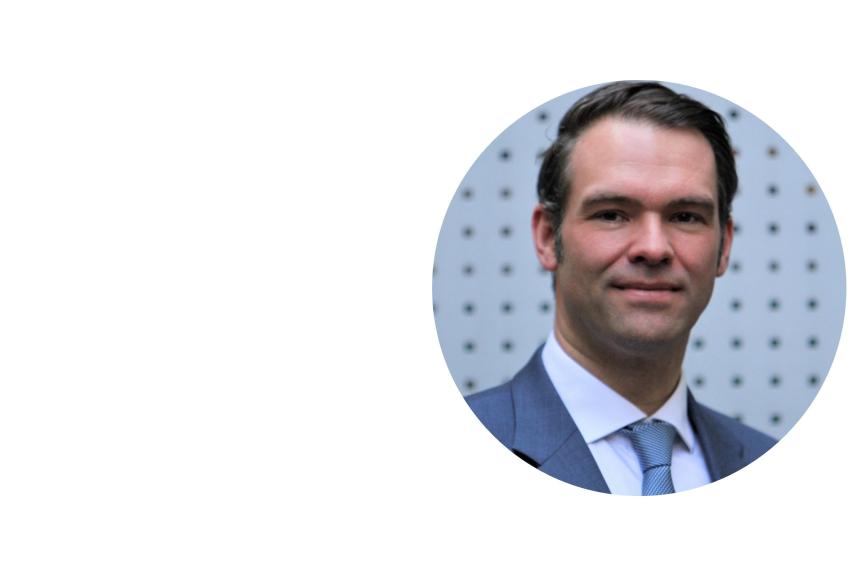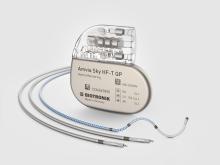New German Supply Chain Act Focuses on Human Rights
Biotronik’s Chief Procurement Officer Takes a Look at the New Statutory Regulations

To date not all German companies are complying with their human rights obligation in their supply chains. In fact, only about one in five companies fulfills mandatory requirements. With the new Supply Chain Act, also know as the Act on Corporate Due Diligence Obligations in Supply Chains (Lieferkettensorgfaltspflichtengesetz, LkSG), which came into effect early this year, there is now a focused effort to ensure that companies improve the situation. We asked Robert Hartan, Vice President Corporate Procurement at BIOTRONIK, what the new regulations mean for companies like BIOTRONIK.
"Corporate Due Diligence Obligations in Supply Chains" is a mouthful, but what does it actually mean? If a company has more than 3,000 employees in Germany (or 1,000from January 1, 2024), it’s required to better monitor its supply chains for human rights and environmental risks and act accordingly to address issues. This currently affects around 800 companies in Germany and, from 2024 on, this figure will be around 3,000. “Essentially it comes down to recognizing whether our suppliers are complying with human rights and environmental protection measures. If there is a breach of these measures, we must be in a position either to motivate the supplier to correct it or end the relationship with that supplier,” explains Robert Hartan, Vice President Corporate Procurement at BIOTRONIK.
With the new Supply Chain Act, human rights violations, such as forced labor or child labor, and violations of occupational health and safety are to be punished more severely. Additionally, environmental risks in the supply chain, such as the use of some banned chemicals or improper handling of waste, will be more strictly monitored by buyers and should ultimately lead to cleaner supply chains.
The list of requirements that comes with the new Act is quite comprehensive. Among other things, companies must conduct regular risk analyses, submit a policy statement and document the newly established processes and results. If companies do not comply, they face fines and penalties.

I see the new Act on Corporate Due Diligence Obligations in Supply Chains as an opportunity to ensure more transparency in the supply chain, regardless of the economic sector. We are aware of our obligation to carry out due diligence and, as a value-oriented company, we want to contribute to more transparent procedures.
What Does the New Act Mean for BIOTRONIK?
“In preparation for the new Act we have established an effective risk management system. This includes, among other things, regular risk analyses based on globally recognized indexes that give risk estimates for certain countries and industries. Based on these risk analysis results, we can gage which regions are high-risk and how we can better monitor collaboration with suppliers from those areas. In general, however, the majority of countries in which we produce and operate, Germany, the USA, Switzerland, and Singapore, are not among the high-risk countries. They have a rather low overall risk profile,” says Robert Hartan, who has been leading BIOTRONIK’s Procurement Department at the company’s Berlin headquarters the past year and a half.
BIOTRONIK’s risk management system is underpinned by various digital tools that help to document and evaluate suppliers. The system includes a new electronic supplier onboarding system. This is particularly important because if the supplier is non-compliant or violates BIOTRONIK’s ethical principals, there’s a high price to pay: exclusion from tenders. Moreover, BIOTRONIK has adopted a stringent human rights policy in which the company calls on suppliers to actively support human rights and environmental protection in their own supply chains. In addition, Hartan’s team has developed a Supplier Code of Conduct. This is a supplement to the existing Code of Business Conduct and binds existing and future suppliers to high environmental and anti-corruption standards.
Clean Supply Chains and Sustainable Management — Two Sides of the Same Coin
“I see the new Act on Corporate Due Diligence Obligations in Supply Chains as an opportunity to ensure more transparency in the supply chain, regardless of the economic sector,” comments Robert Hartan. “We are aware of our obligation to carry out due diligence and, as a value-oriented company, we want to contribute to more transparent procedures.” As part of the implementation of the Supply Chain Act, BIOTRONIK has committed itself to monitor and continuously assess all suppliers for human rights violations and environmental crime by 2026. This is also a measurable target of the new sustainability strategy.
How will things progress in the future? “I strongly assume that sustainability issues such as carbon footprint and energy efficiency will become ever more relevant as selection criteria for suppliers during the tender process,” says BIOTRONIK’s senior buyer. “Over the past year we have faced the challenge of fully understanding the new law, as well as finding and setting up the right tools to implement the Supply Chain Act.” These issues particularly appeal to Robert Hartan in his role: “I love optimizing processes, finding new solutions and introducing innovative trends into the supplier market at BIOTRONIK.”
Reporting and testing the new systems will be the focus in 2023. “We look forward to seeing how the Supply Chain Act applies in practice and helps us to further optimize our supplier relationships,” sums up Robert Hartan.










